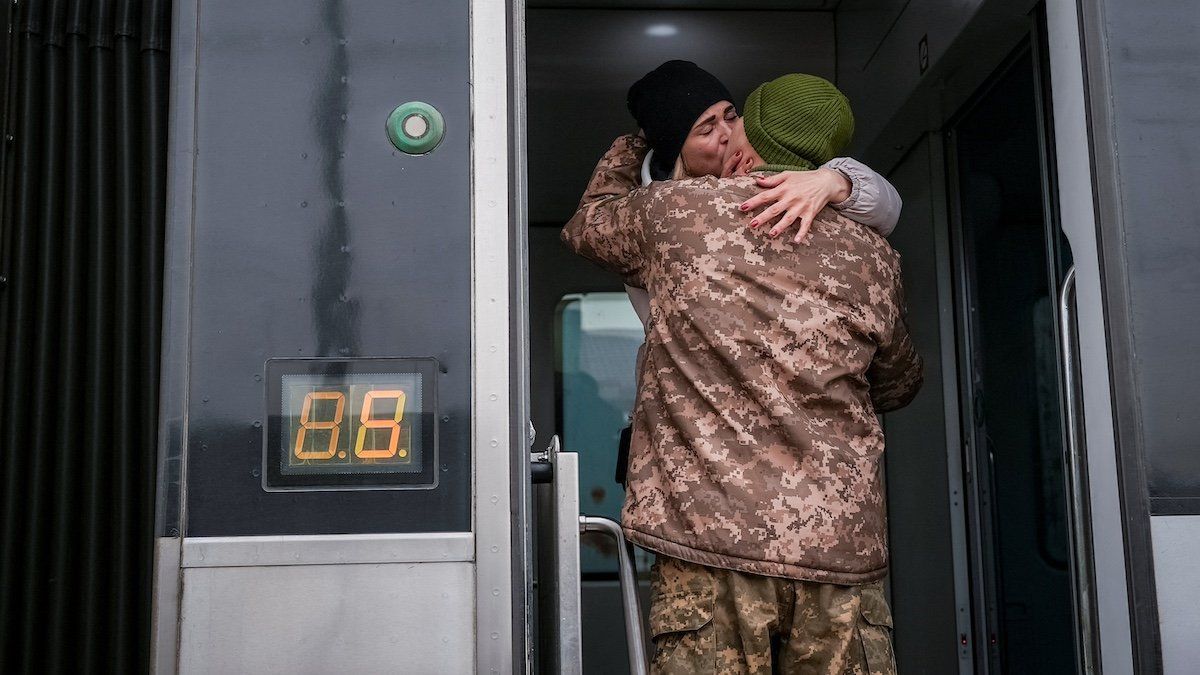Yehor Terekhov and his wife Anna had always planned to have children. But when Yehor was injured on the front lines of the war in Ukraine, they decided to freeze that possibility — literally. The couple, who live in Kyiv, decided to preserve Yehor’s sperm in case he didn’t return from his next tour of duty. “At war, anything can happen,” he says. “It is always good to have a Plan B.”
For Yehor, 44, the decision wasn’t just personal; it was also political. He saw it as a way “to preserve the genes of the Ukrainians, especially the ones who are ready to sacrifice their lives.”
Yehor and Anna are among the thousands of couples in Ukraine who have frozen reproductive material since the war broke out in 2022. Most fertility clinics have offered the service for free or at reduced prices to military members.
Until recently, the law had nothing specific to say about using those specimens even after their donors were killed. So fertility clinics – which are common in a country that was once a world leader in surrogacy and IVF – simply required notarized contracts permitting spouses to use the sperm if the men died in combat.
Then, in November 2023, the Ukrainian Parliament passed legislation requiring clinics to destroy the sperm of soldiers killed in combat. Some lawmakers opposed posthumous reproduction on religious grounds, and others worried about the costs of cryopreservation.
But many couples were not informed of the change.
That was when Olena Babich, a Kyiv-based lawyer who has worked in Ukrainian maternity law for 20 years, took to Facebook to write about a widow who had recently learned she could no longer use her husband's sperm.
“How,” she asked, “do you explain to a grief-stricken woman who, just a couple of months ago, was drawing up documents with her husband to have a child, that while her husband was defending the state and died, our lawmakers literally deprived him of the right to be a father after his death?"
The post caused a huge public outcry. It was shared over 10,000 times and generated 1,500 comments, many of which accused the government of destroying future generations of Ukrainians, spurring Ukrainian MPs to take to the comment section to defend themselves. Many government officials wrote they did not understand what they were voting for and promised to rectify the legislation.
Ukraine’s parliament voted to revise the bill in February. Under the new law, which takes effect in April, the government will now pay for the collection and preservation of servicemen’s sperm for up to three years. It will allow for post-mortem use as long as it is explicitly permitted in the deceased soldier’s will.
“It was one of the rare cases when one Facebook post changed the legislation of the country,” says Babich.
Still, Babich is not satisfied with the revised legislation. While the government is paying for cryopreservation, there is no program to assist widows with the costs of artificial insemination, she says. In Ukraine, the cost of that service can range up to $1,000, no small amount in a country where the average monthly wage is $388.
Ukraine isn’t the only country grappling with whether fallen soldiers can father children. Ukraine is now one of just 12 countries that have legalized posthumous reproduction. Supporters of the procedure say it’s a way to preserve soldiers’ bloodlines. But there are many thorny ethical and legal questions surrounding using the sperm of the deceased.
In Israel, where the procedure has been legal since 2003, the government expanded the service after the Hamas attacks of Oct. 7. It is now legal to retrieve sperm from soldiers shortly after they are killed in battle. However, in Israel, it is largely the parents of the deceased, not the widows, who are fighting for the right to have grandchildren.
Some critics of posthumous reproduction have called it “planned orphanhood” and say it’s unethical to produce a child who may grow up without one or both of their parents. Others continue to object on religious grounds — IVF of any kind can involve the disposal of embryos, which they consider to be living beings.
But for couples like Yehor and Anna, it’s about leaving behind living monuments to bravery.
“To the people who are fighting,” says Yehor, who has deployed again to the front lines in Donetsk, “it is important to know that they are preserving their bloodlines.”
